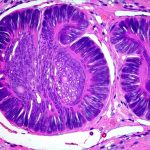Frequent colds, seemingly harmless inconveniences for many, can sometimes signal underlying issues beyond just viral exposure. While most individuals experience occasional upper respiratory infections, a pattern of recurring illness – particularly if it’s disproportionately frequent or severe – warrants investigation. It’s easy to dismiss these occurrences as simply “having a weak immune system,” but this often overlooks the intricate connection between our digestive health and overall immunity. A significant portion of our immune cells reside in the gut, making it a critical battleground for defense against pathogens. Increasingly, healthcare professionals are recognizing that digestive dysfunction can profoundly impact immune competence and contribute to increased susceptibility to infections, including common colds.
The conventional focus on boosting vitamins or increasing sleep, while valuable, may not be sufficient if there’s an underlying digestive issue hindering the body’s ability to effectively respond to threats. The gut microbiome – the trillions of bacteria, fungi, viruses and other microorganisms living in our digestive tract – plays a vital role in immune regulation. An imbalance within this ecosystem, known as dysbiosis, can compromise immune function. Furthermore, conditions like leaky gut syndrome (increased intestinal permeability), malabsorption issues, or chronic inflammation within the digestive system can all impair immunity and increase vulnerability to infections. This article will delve into the diagnostic approaches used to assess digestive health in patients experiencing frequent colds, exploring how a comprehensive evaluation can help identify root causes and guide targeted interventions.
The Gut-Immune Connection & Diagnostic Principles
The intimate relationship between the gut and the immune system is now well-established. Approximately 70-80% of our immune cells are located in the gut-associated lymphoid tissue (GALT), making it a central hub for immune surveillance and response. This close proximity allows constant interaction between the gut microbiome and the immune system, shaping its development and function. A healthy gut microbiome contributes to: – Enhanced antibody production – Regulation of inflammatory responses – Increased natural killer cell activity – crucial for fighting off viral infections – Production of short-chain fatty acids (SCFAs) which have anti-inflammatory properties. Disruptions in this delicate balance can lead to immune dysregulation, increasing the risk of frequent colds and other illnesses.
Diagnostic strategies for evaluating digestive health in patients with recurrent colds are shifting away from solely focusing on symptom management towards identifying underlying causes. It’s important to move beyond simply asking “Do you have a cold?” and instead explore questions related to digestive symptoms, dietary habits, stress levels, and medication use. A thorough patient history is the cornerstone of any evaluation, followed by targeted testing designed to assess microbiome composition, intestinal permeability, nutrient absorption, and inflammatory markers. The goal isn’t just to identify a problem, but also to understand its complexity and interconnectedness with other health factors.
The diagnostic process often follows a tiered approach. Initial assessments might involve basic stool tests to detect parasites or bacterial overgrowth. If these are negative, more advanced testing may be warranted. These could include comprehensive stool analysis (CSA), intestinal permeability testing (often lactulose/mannitol breath test), and blood tests to assess nutrient deficiencies, inflammatory markers, and antibody levels related to food sensitivities or autoimmune conditions. It’s crucial to remember that no single test provides a complete picture; a holistic assessment is essential for accurate diagnosis and effective treatment planning. Considering a how to build a complete gut health profile with diagnostics can be beneficial.
Stool Analysis: Unveiling the Microbiome
Comprehensive stool analysis (CSA) has become an increasingly valuable tool in evaluating digestive health, particularly in patients with frequent colds. Unlike basic stool tests that primarily screen for pathogens, CSA provides a detailed snapshot of the gut microbiome’s composition, including bacterial diversity, levels of beneficial and pathogenic bacteria, yeast overgrowth, and markers of inflammation. This information can help identify imbalances contributing to immune dysfunction. Key parameters assessed in CSA include: – Total aerobic bacteria count – indicating overall bacterial load – Levels of specific beneficial bacteria (e.g., Lactobacillus, Bifidobacterium) – reflecting gut health – Presence of opportunistic pathogens (e.g., Clostridium difficile, Klebsiella pneumoniae) – Markers of inflammation (e.g., calprotectin, lactoferrin) – Digestive enzyme levels and pancreatic elastase – assessing digestive capacity. Understanding digestive testing used in post-antibiotic care can also prove insightful.
Interpreting CSA results requires expertise, as microbiome composition varies significantly between individuals and is influenced by factors like diet, medication use, and genetics. A healthy microbiome is typically characterized by high diversity and a balanced ratio of beneficial to pathogenic bacteria. Low diversity or an overgrowth of specific pathogens can disrupt immune function and increase susceptibility to infections. For instance, low levels of Bifidobacterium have been linked to impaired immune responses and increased risk of respiratory infections. It’s also important to consider that CSA results are a snapshot in time and may not always reflect the microbiome’s long-term state.
Following CSA results, interventions might include dietary modifications (e.g., increasing fiber intake, reducing sugar consumption), probiotic supplementation targeted towards restoring microbial balance, or prebiotics – nutrients that feed beneficial bacteria. However, it’s crucial to avoid indiscriminate use of probiotics without proper assessment, as the wrong strains can sometimes exacerbate gut imbalances. The aim is not just to add more bacteria, but to cultivate a thriving and resilient microbiome ecosystem.
Intestinal Permeability: Assessing Leaky Gut
“Leaky gut syndrome,” or increased intestinal permeability, refers to a condition where the barrier function of the intestinal lining is compromised, allowing undigested food particles, toxins, and pathogens to leak into the bloodstream. This can trigger systemic inflammation and immune activation, contributing to various health problems, including frequent colds. While the term “leaky gut” remains controversial in some medical circles, the concept of increased intestinal permeability is well-supported by scientific evidence.
The most common method for assessing intestinal permeability is the lactulose/mannitol breath test. This non-invasive test involves ingesting a mixture of two sugars – lactulose and mannitol – and then collecting urine samples over several hours. Mannitol is readily absorbed through the healthy intestinal lining, while lactulose is larger and typically remains in the gut lumen. In cases of increased permeability, more lactulose is absorbed into the bloodstream, leading to elevated levels in the urine. The ratio of lactulose to mannitol excretion provides an indication of intestinal barrier integrity.
A high lactulose/mannitol ratio suggests increased permeability, indicating a compromised intestinal barrier. Factors contributing to increased permeability include: – Chronic inflammation – from diet or infections – Stress – which can disrupt gut function – Certain medications – like NSAIDs and antibiotics – Dietary factors – such as gluten sensitivity or sugar intake. Addressing leaky gut typically involves identifying and eliminating triggers, supporting gut repair through dietary modifications (e.g., bone broth, collagen supplementation), reducing inflammation, and restoring microbial balance. It’s also helpful to understand diagnostics often used in hormonal digestive symptoms as these can play a role.
Inflammatory Markers & Nutrient Deficiencies
Chronic inflammation within the digestive system can significantly impair immune function and contribute to frequent colds. Identifying inflammatory markers in blood tests can provide valuable insights into underlying processes. Common markers assessed include: – C-reactive protein (CRP) – a general marker of inflammation – Fecal calprotectin – indicating intestinal inflammation – Erythrocyte sedimentation rate (ESR) – another measure of systemic inflammation. Elevated levels of these markers suggest ongoing inflammatory activity, which may be related to digestive dysfunction or other underlying conditions.
Alongside assessing inflammation, evaluating nutrient deficiencies is crucial. Many essential nutrients play vital roles in immune function, and malabsorption issues can lead to deficiencies that compromise immunity. Common deficiencies observed in patients with digestive problems include: – Vitamin D – essential for immune cell activation – Zinc – supports antibody production and immune cell development – Iron – necessary for oxygen transport and immune cell function – B vitamins – involved in energy metabolism and immune regulation.
Addressing nutrient deficiencies requires a personalized approach, considering the underlying cause of malabsorption. Supplementation may be necessary, but it’s often more effective to optimize digestive function through dietary changes and lifestyle modifications to enhance nutrient absorption from food. It is important to note that self-treating with high doses of supplements can sometimes be harmful; professional guidance is essential for safe and effective supplementation strategies. First-line assessments in patients are crucial here.
Ultimately, diagnosing digestive issues in patients experiencing frequent colds requires a holistic and individualized approach. By combining thorough patient history taking, targeted testing, and expert interpretation, healthcare professionals can identify underlying causes and develop tailored interventions to restore digestive health, enhance immune function, and reduce the burden of recurring illness. Consider early screening in people for proactive care, and don’t overlook top overlooked tools. Finally, remember to check recommended diagnostics for people with a family history of GI issues.


















